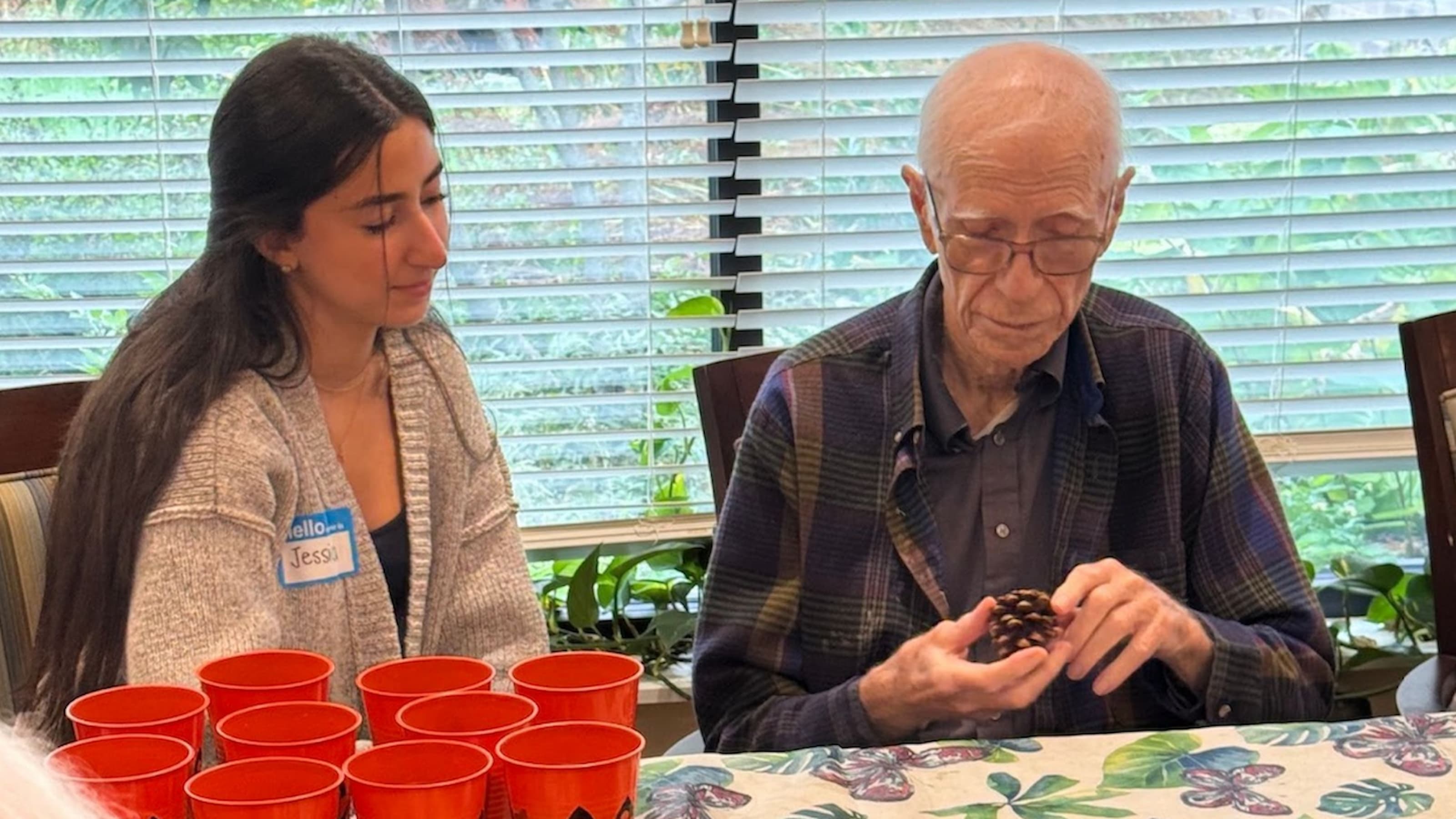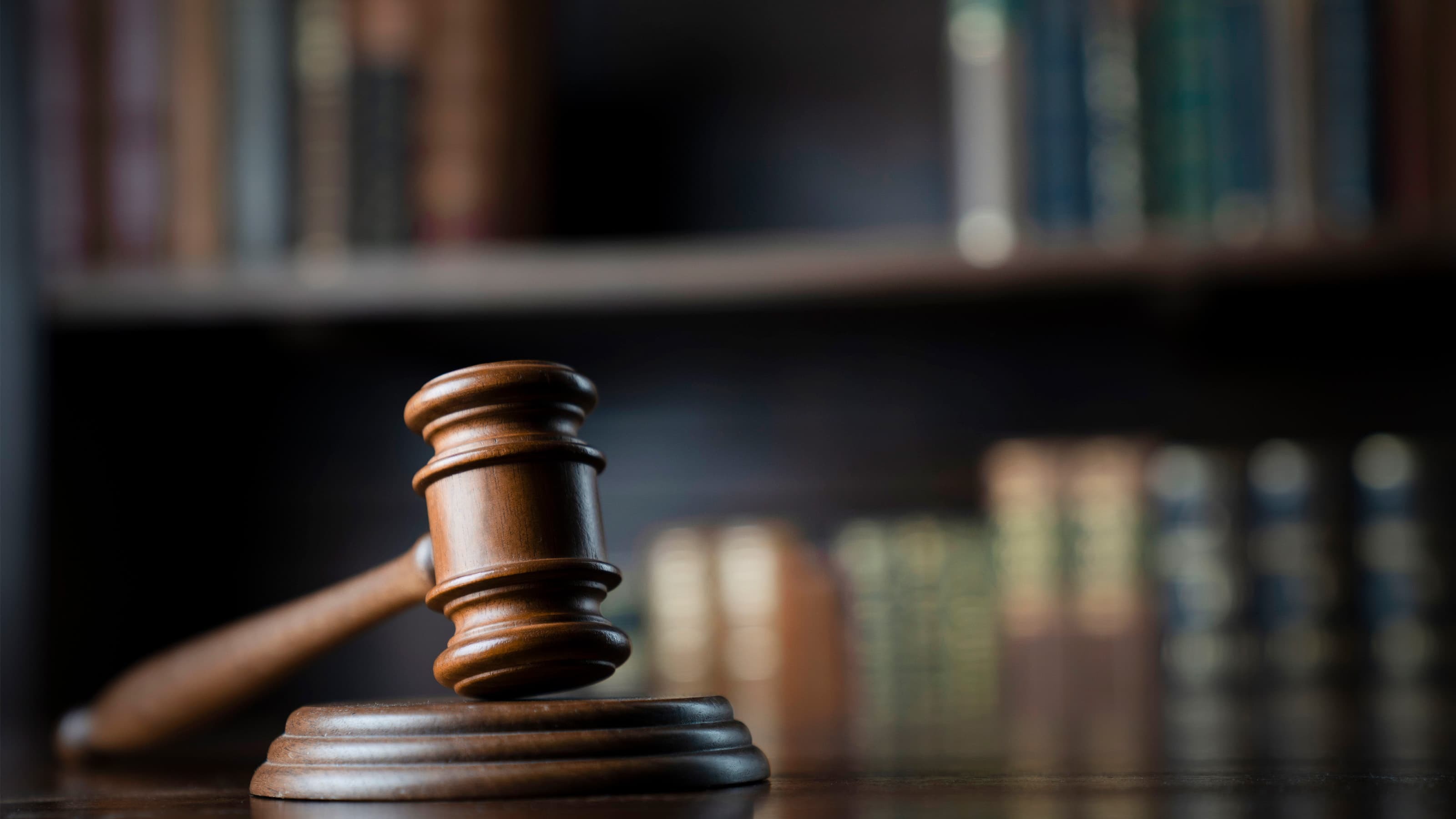Bringing the Election to the Classroom
Several faculty members are incorporating different topics of the presidential elections into their lessons.

KEYS TO THE ARTICLE
- Several courses at St. Joe’s are focusing on the Presidential Election and incorporating it into their lessons.
- Despite the divisive nature of the election, discussion among students is encouraged, and civility and respect are required.
- Students are learning about topics such as economics and the election, politics and media, and behaviors associated with elections.
With less than a month until the 2020 presidential election, some faculty at Saint Joseph’s are taking advantage of this time to incorporate election-related topics into their courses. But given the especially divisive nature of this election season, many faculty members are approaching the subject delicately.
“It’s like wading into a minefield,” admits Laura Bucci, Ph.D., an associate professor of political science. “The difference is to talk about elections like political scientists, and less like partisans or people who have high stakes in this.” Bucci’s class, “Election 2020,” focuses on behaviors associated with elections, such as voting and campaign participation. “We research why people vote and ask how we can get people to vote. We examine how we do polling, and how we get people involved and mobilized.” Bucci expects her students to remain civil. “If you’re going to say you don’t like something, that’s okay. But it’s the “why” that’s the point. These are debates over ideas, not over people.”
“The dialogue in class has been respectful,” says Daniel O’Connell ’23. “We focus on discussing and analyzing the institutions, rather than the politics. We focus more on the structure.” The class has also educated him on the different aspects of voting, such as restrictions, access to polling places and demographics of voters. “This class has reinforced that voting, and getting people to vote and partake in democracy, is key and vital to our success as a society.”
Bucci says she wants her students to think of democracy as more of an active process, and to become engaged. “Democracies don’t just appear,” she emphasizes. “They require active participation and engagement.” To reinforce this, Bucci has offered to stay after classes to help students register to vote, if they have not already.
Media and Politics
For Assistant Professor of English, Shenid Bhayroo, Ph.D., the approach to election discussions in the classroom leaves more room for political viewpoints. “I teach from the principle that journalism shouldn’t necessarily aspire toward this unattainable concept of objectivity,” he explains. “Instead, journalism is about fairness, attention to detail, thorough reporting, factual evidence and careful analysis. Your viewpoint is going to be visible at some extent, perhaps through the questions you ask, your socioeconomic and racial background, or the sources you select for your stories.”
In his class, students look at different types of media organizations – such as corporate media or non-profit media – and analyze how they cover elections. “Television covers these events in a specific way, which is both similar and different from a print publication, or a radio station,” says Bhayroo. “CNN covers an event related to politics differently when compared to how FOX or Propublica would cover that event.” The aim of his class is to understand how media, journalists and the institution of journalism narrate election stories.
“This class has reinforced that voting, and getting people to vote and partake in democracy, is key and vital to our success as a society.”
Daniel O'Connell '23
“This week, we looked at the relationship between the White House and the White House press corps,” says Bhayroo. “We observed how they relate to each other, what the White House spokesperson does, then we read research articles that examine theoretical approaches regarding the normative role of media.” Students also watched the presidential debate and had a template to complete while they watched. The next day, they analyzed what they saw, discussing the highlights and takeaways, with a focus mainly on the media coverage. “My goal is for students to understand the normative role of media in a representative democracy, and then to compare this to how media functions in practice in our democracy,” explains Bhayroo. “I also want them to understand the importance of reading more than one source of news about politics, and to recognize propaganda, disinformation and misinformation.”
Economics and the Election
Nancy Fox, Ph.D., an associate professor of economics, tries to bring real-world examples into her economics lessons.
“I learned through years of experience that teaching 101 intro courses that focus on theory can be a bit dry,” she admits. “And I noticed increasingly that when I’d bring a current event, real-world example of a principle, students perked up and got engaged.” Normally, her classes would focus on economics and social justice. “Usually, I would take a public policy issue, and look at the economics of it and then the social justice and Catholic teachings of it. They’re not framed in a political sense; we live in a market economy, and I’m a market economist.”
This year, she decided to take major economic topics of the election and make them economic theory lessons. When she originally came up with the idea for this course – entitled “Electionomics: Economics of the 2020 Elections” – Fox expected that healthcare would be the major topic. “But we spent so much time discussing the economics of COVID that we’re behind.” The class delved into the second set of proposed relief packages, going over the pros and cons. In one class they discussed tax proposals and in another, the economics of climate change.
“People are definitely awake in these classes,” says Fox. “Everyone comes in with opinions, and I’m trying to let them push back on one another, respectfully. Students are saying ‘I disagree’ rather than ‘you are right or wrong,’ which is more respectful and less personal.”
“Dr. Fox lets us debate, and doesn’t take a side,” says Luke Vacha ’24. “But if someone says something that’s not founded in facts, she’ll point it out. We have to give a reason for our opinion.”
Fox sets these ground rules at the start of any controversial course she teaches. “The first rule is: you can have whatever opinion you want, but you have to back it up with fact,” she explains. “And the second rule is: I expect heated, passionate debates in class – but they have to be civil.”



